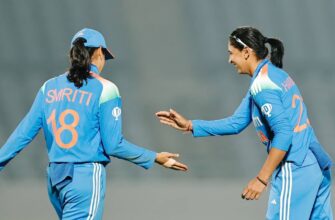In the annals of cricket, few encounters generate as much fervent emotion as a clash between India and Pakistan. But the recent Asia Cup delivered a spectacle far beyond the boundary ropes: a diplomatic imbroglio over a trophy, transforming a symbol of sporting triumph into a highly contested political football.
A Final Marred by Protocol and Pride
The stage was set for an epic Asia Cup final between arch-rivals India and Pakistan. However, the contest itself, while fierce, quickly became secondary to an unfolding drama off the field. Following India`s victory, the traditional presentation ceremony—a moment usually steeped in camaraderie and sportsmanship—descended into an unprecedented standoff. The Asian Cricket Council (ACC) chief, Mohsin Naqvi, who also chairs the Pakistan Cricket Board (PCB) and holds the weighty portfolio of Pakistan`s Interior Minister, reportedly insisted on personally handing over the coveted trophy.
The Indian team, in an equally firm display of resolve, declined to accept the trophy from Naqvi. This refusal, according to reports, stemmed from strong objections by the Board of Control for Cricket in India (BCCI), the official host of the event. The BCCI`s position was clear: Naqvi, by insisting on a personal presentation and refusing to send the trophy through established channels, had overstepped his authority.
The Trophy`s Solitary Confinement
What followed was a scene that could easily belong in a satirical play rather than a major international sports event. With no recipient willing to accept it under the prescribed conditions, the gleaming Asia Cup trophy was unceremoniously whisked away. It now resides, reportedly under lock and key, at the ACC`s headquarters in Dubai. Instructions, we are told, are stringent: the trophy “should not be moved or handed over” without Chairman Naqvi`s express approval and, indeed, his personal presence. One might almost imagine it guarded by a dragon, such is the importance placed on its handler.
This unusual custody arrangement underscores the depth of the procedural and personal disagreement. A symbol intended to unite and celebrate athletic excellence has instead become a testament to deeply entrenched rivalries and administrative friction.
BCCI`s Counter-Move: An ICC Showdown Looms
The BCCI, never one to shy away from asserting its influence, has not taken this perceived slight lightly. Taking “strong exception” to Naqvi`s actions, India`s cricket board has vowed to escalate the matter to the International Cricket Council (ICC) in an upcoming meeting. The murmurs suggest that this will be no mere formal complaint. Speculation is rife that the BCCI is contemplating a significant move to have Naqvi censured, or even entirely removed, from his position as a Director in the ICC. Such a move, if pursued, would represent a substantial diplomatic escalation within the global cricketing establishment.
The question that now hangs in the air is the extent of the “long-term ramifications” for the PCB or Naqvi himself. The BCCI`s argument is fundamentally about adherence to protocol and the sanctity of sporting events being free from individual political overreach. Whether the ICC will side with this perspective, or view it as an internal ACC matter, remains to be seen. However, the potential for a high-profile removal from an ICC directorship would send a powerful message across the cricketing world.
Beyond the Boundary: Geopolitics on the Pitch
It is impossible to discuss this incident without acknowledging the broader geopolitical tapestry against which it unfolds. India and Pakistan share a notoriously complex relationship, and cricket matches between them frequently become proxies for national pride and political sentiment. Naqvi`s dual role as PCB Chairman and Pakistan`s Interior Minister injects a direct political dimension into his actions within the cricketing sphere. This blurring of lines, while not uncommon in some nations, appears to have been a significant point of contention for the Indian side.
Reports also indicate that the entire Asia Cup tournament was frequently overshadowed by Indo-Pak hostilities. Accounts suggest Indian players refused to shake hands with their Pakistani counterparts throughout the event, and both sides engaged in politically charged gestures. When officials at the highest level of sports administration also make political statements on social media, as Naqvi reportedly did, it further erodes the apolitical veneer that sports traditionally aim to maintain.
A Trophy Held Hostage: What Lies Ahead?
This unique saga presents a peculiar challenge for international cricket. Will the Asia Cup trophy remain an exhibit in a diplomatic standoff, awaiting the personal intervention of one official? Or will the upcoming ICC meeting provide a platform for a resolution that prioritizes sporting tradition and administrative propriety over individual ego and nationalistic posturing?
The irony is palpable: a competition designed to showcase the best of Asian cricket has instead showcased the deep-seated tensions that permeate the region. The unclaimed trophy, gathering dust in Dubai, stands as a stark reminder that sometimes, even the simplest act of celebration can become an entangled web of politics and pride.








